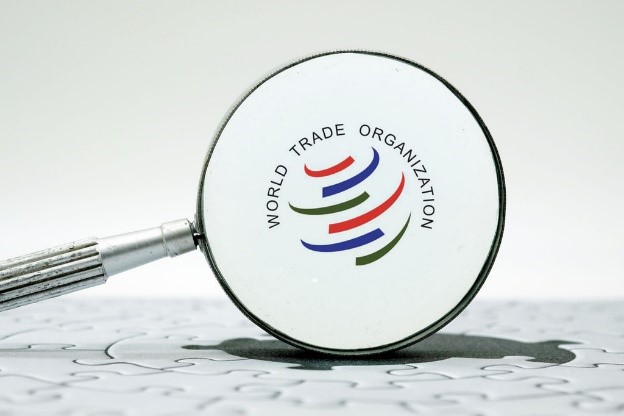Description

Disclaimer: Copyright infringement not intended.
Context
- India and EU affirmed commitment to work together on WTO reforms.
Details
- Both sides affirmed their commitment to work together on common priorities for WTO reforms including issues pertaining to-
- Dispute resolution mechanism,
- Subsidies on agriculture and fisheries,
- Ecommerce moratorium as well as domestic legislation.
- Both sides recognized the need to build on their common goals to pursue consensus-based solutions that would support the livelihoods and food security for millions in India as well as in large parts of the developing world.
- They expressed hope that their joint efforts would enable finding meaningful solutions in the upcoming WTO Ministerial Conference.
WTO FARM SUBSIDIES ISSUE: https://www.iasgyan.in/daily-current-affairs/wto-farm-subsidies-issue
Criticisms of WTO
- Free Trade benefits developed countries more than developing countries. It is argued, developing countries need some trade protection to be able to develop new industries; this is important to be able to diversify the economy. It is known as the infant industry argument. Many developed economies used a degree of tariff protection in their development phase. Economist Ha Joon Chang argues WTO trade rules are like ‘pulling away the ladder they used themselves to climb up’ (Kicking away the ladder at Amazon)
- Most favoured nation principle. This is a core tenant of WTO rules – countries should trade without discrimination. It means a local firm is not allowed to favour local contractors. It is argued this gives an unfair advantage to multinational companies and can have costs for local firms and the right of developing economies to favour their own emerging industries.
- Failure to reduce tariffs on agriculture. Free trade is not equally sought across different industries. Both the US and EU retain high tariffs on agriculture, this hurts farmers in developing economies who face tariff protection
- Diversification. Arguably developing countries who specialise in primary products (e.g. agricultural products) need to diversify into other sectors. To diversify they may need some tariff protection, at least in the short term. Many of the existing industrialised nations used tariff protection when they were developing. Therefore, the WTO has been criticised for being unfair and ignoring the needs of developing countries.
- Free trade has often ignored environmental considerations. e.g. Free trade has enabled imports to be made from countries with the least environmental protection. Many criticise the WTO’s philosophy that the most important economic objective is the maximisation of GDP. In an era of global warming and potential environmental disaster, increasing GDP may be the least important. Arguably the WTO should do more to promote environmental considerations.
- Free trade ignores cultural and social factors. Arguably a reasonable argument for restricting free trade is that it enables countries to maintain cultural diversity. Some criticise the WTO for enabling the domination of multinational companies which reduce cultural diversity and tend to swamp local industries and firms.
- The WTO is criticised for being undemocratic. It is argued that its structure enables the richer countries to win what they desire; arguably they benefit the most.
- Slow progress. Trade rounds have been notoriously slow and difficult to reach an agreement.
- WTO becoming overshadowed by TIPP agreements which fall outside the purvey of WTO rules.

Way Ahead
- India has been pitching for a reformed WTO. India has maintained that it is committed to work along with other countries to reform the World Trade Organisation (WTO) in order to ensure that it continues to be an engine for global trade. India also believes that while an institution like the WTO is required and should remain intact, it needs to change.
- However, New Delhi is against changing the consensus-driven character of the multilateral trade body.
- India recently drew up a proposal aimed at reforming the dispute settlement mechanism, rule-making and transparency requirements. India’s move assumes significance in the backdrop of growing protectionism.
- India has been asking for a resolution of the appellate body issue because it feels that this is central to the very essence of WTO and unless addressed, the WTO might well turn into a ‘discussion body’.
- India, insists that a promise to reform the trade rules to boost developing nations, made by WTO ministers in Doha in 2001, must be kept before the WTO can move on to negotiate new rules in other areas.
|
PRACTICE QUESTION
Q. The issue of WTO reform is a broad one, encompassing many facets of the WTO's work. What are the criticisms of WTO? Suggest measures to reform WTO.
|

https://pib.gov.in/PressReleasePage.aspx?PRID=1924405













